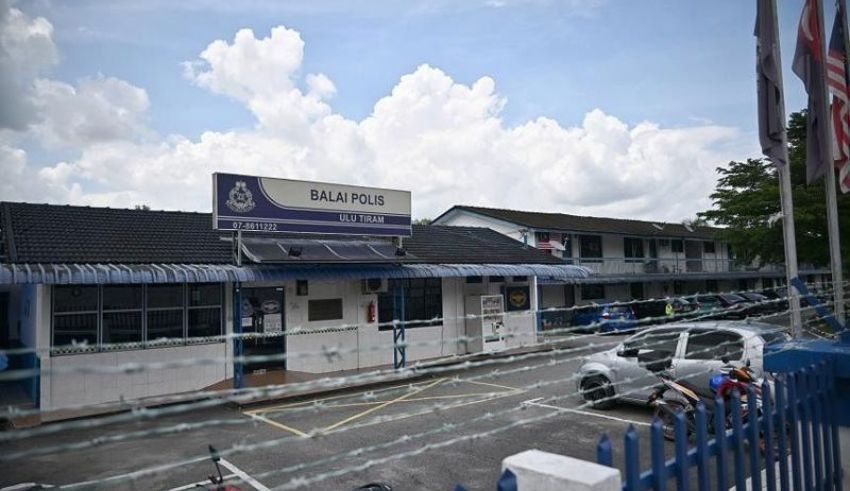
Malaysia is still in shock after the recent attack on the Ulu Tiram police station after nearly 20 years without any significant terror attacks. The terrible murders of two police officers in this incident have sparked fears about the potential emergence of local ISIS sympathizers.
The phenomena of the lone wolf
At first, the attack was seen to be connected to the terrorist Southeast Asian al-Qaeda group Jemaah Islamiah (JI). In the meanwhile, another research found a more alarming tendency: young Southeast Asians’ inclination to join pro-Islamic State groups. A man aged twenty-one was named as the culprit and ‘lone wolf’ attacker. Being autonomous and unaffiliated with any known terror organizations, his conduct served as an example of the growing problem of lone-wolf terrorism.
Comments from Islamiah Jemaah
The suspect’s actions in Ulu Tiram revive memories of JI in the area even if he is not a direct member of the group. Formerly the location of the notorious Lukmanul Hakim Islamic boarding school, which was notorious for radicalizing students and turning out terrorists who carried out the Bali bombings in 2002, the region was a major JI stronghold. Ulu Tiram’s historical context makes the security situation there now more difficult.
The Purpose of Cyberspace
Experts claim that young people are being radicalised online more and more. ISIS doctrine attracts these people more than conventional organizations like JI. This tendency of internet radicalization presents fresh difficulties for counterterrorism operations. In the huge and sometimes anonymous cyberspace, radicalization is harder to identify and stop. Extremist ideas have propagated more easily because of contemporary media and encrypted communication channels, which allows potential attackers to interact with like-minded individuals without drawing notice from the police.
The official reaction
Malaysian authorities reacted strongly after the attack to counter this new threat. The Inspector-General of Police underlined the difficulty of dealing with lone actors motivated by radical ideology while stressing that the suspect had no direct links to any terrorist groups. The administration has examined and changed police station security protocols, which has increased attention. Tighter access restrictions, more monitoring, and more police training to handle possible threats are some of the measures.
Community Involvement and Counter Radicalization Initiatives
The event has also shown again how important community participation is in preventing radicalization. The authorities are cooperating closely with local leaders, educational institutions, and religious organizations to strengthen opposition to radical ideas. Youth are being helped to fend against the attraction of internet radicalization by programs designed to foster critical thinking and media literacy. Additionally wanted are former extremists and victims of terrorist acts who can relate their stories and debunk the myths spread by organizations such as ISIS.
Harmony and Vigilance in Brief
The Ulu Tiram incident emphasizes the significance of responding quickly to the ever changing terrorist threat. To halt radicalization, especially online, it also calls for cooperation. Its peace and security are obviously at jeopardy as Malaysia struggles with the emergence of ISIS sympathizers. This strategy includes improved physical security measures together with advanced cyber tactics to identify and stop radicalization on the internet. Malaysia may better handle the intricate and dynamic character of modern terrorism by encouraging collaboration between government departments, community organizations, and international partners.
Keep Reading
Future Action and Improvements
In response, the Malaysian government has increased cooperation with its neighbors in order to exchange intelligence and best practices for counterterrorism. Prioritized is regional collaboration to find and stop terrorist acts across international borders through ASEAN and other international organizations.
Curriculum promoted by educational institutions encourage tolerance, peace, and rejecting radicalism. In order to foster trust and collaboration at the local level, community policing is being enhanced concurrently with a growing focus on involving families and communities in the early identification of radical tendencies among young persons.
Media coverage of actual events and avoidance of sensationalism are prerequisites for supporting counterterrorism initiatives. Resilience and constructive contributions of people affected by terrorism may be highlighted in order to help dispel extremist myths and advance a more inclusive society.
It is obvious moving ahead that putting in place physical security measures is not as important to the fight against terrorism as winning over the people. Through tackling the underlying reasons of radicalization, encouraging social cohesiveness, and making sure that everyone feels respected and included, Malaysia can build a more strong and resilient society.




